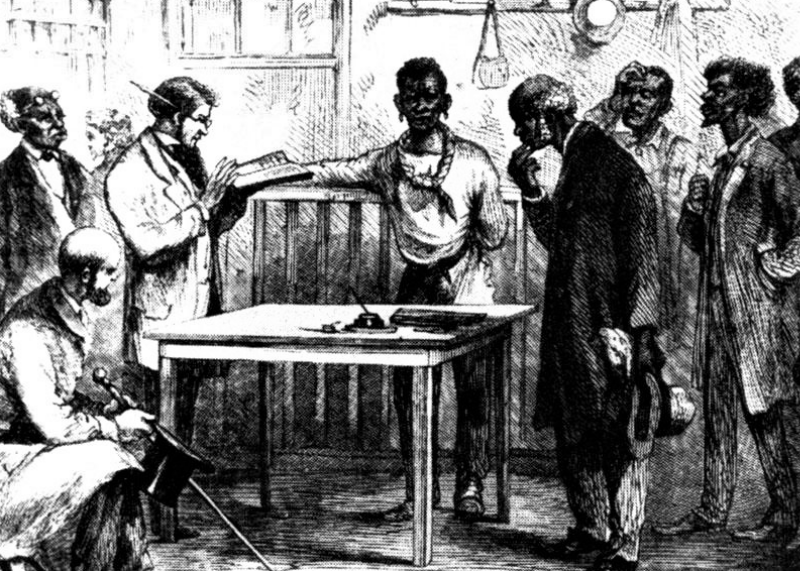
It’s election time, the polls are open for early voting, excitement and contentiousness fill the air…and air waves.
We hear all sorts of accolades praising our “Founding Fathers” and those principles of Constitutional law, the sacred nature of the vote, and how we, as a nation, need to return to the eighteenth-century roots of our republic. On some level this all sounds nurturing, supremely “patriotic,” and comforting as we bask in the wisdom and brilliance of those men who wrote our Declaration of Independence and Constitution.
But before we dive head-long into such a love fest, let us examine more closely just what these folks envisioned and how we, as a United States of America, have evolved into what we are today.
The society of the eighteenth century was not “egalitarian.” For all the talk of “inalienable rights,” those who were the decision-makers were male, landowners, and of European (generally English-speaking) ancestry. In certain parts of the nation, there were also religious criteria, some places anti-Catholic, some anti-Jewish, some others evangelical to the utmost in those days of the Great Awakening.
Yes, there was a sensitivity to the needs of others, but if a person was poor or of color or female or of an underclass (however that might be defined through the years) such would be determined by those who made the laws, not necessarily those who would receive the largesse of their governance. Let’s put it brutally straightforward: if rich white men wanted you to have something, you got it; if they didn’t want you to have a benefit, you just had to suffer the lack!
Voting 24 decades ago was restrictive and what we today would call elitist. Remember, the US Constitution itself granted to the States the power to set voting requirements. It may shock us that our own Georgia was, at times, the most “progressive” state in the nation regarding voter accessibility and rights. The Georgia Legislature removed the property requirement in 1789, then nine years later eliminated the tax-payer requirement. Georgia was the first state to grant 18-year-olds the right to vote at the end of World War II.
The early 1800s saw most Northern states expand prohibitions to stifle voting opportunities for Free Blacks, Chinese (California did not remove that restriction until almost 1950), and any indigenous people.
In Georgia, the State Legislature chose the electors for President until 1828. That first election that saw George Washington elevated to the highest office was more competitive in our state where the ten electors scattered their votes with five to Washington, two for Georgia Secretary of State John Milton, and one each to James Armstrong, Benjamin Lincoln (for whom our neighboring county is named), and Edward Telfair. Other than the 1796 election, when Georgia’s limited number of popular voters chose Thomas Jefferson over John Adams 4759 to 2109, there was no vote by the people to select the presidential favorite. Finally, with the popular vote in 1828, Andrew Jackson gathered in the Georgia vote 17,703 to a minuscule 605 for John Quincy Adams! Four years later, all 20,750 popular votes went to Jackson when the Legislature refused to even allow ballots for Henry Clay or any other candidate.
The 15th Amendment (put into effect in 1870) granted the vote to Free Black males over 21, though state processes, not just in the South, soon restricted much of that initial progress. By 1877 Georgia had enacted a poll tax, quickly followed by literacy tests and “grandfather clauses” which had, by the early 1900s, effectively eliminated not only the Black vote but that of many poor illiterate white rural dwellers as well.
The Georgia State Legislature enacted the County Unit System in 1917 specifically to keep power in the hands of rural elected officials so those “nasty” city folks couldn’t impose their wishes upon those in the hinterlands even as much of the state was inevitably becoming urbanized. It was almost fifty years before that idea was overturned.
Women gained the vote via the 19th Amendment in 1920. The poll tax was repealed in 1945. The Federal Voting Rights Act was passed in 1965.
O how there has been advancement in our ability to cast ballots and participate in the process. It’s not perfect. All qualified voters deserve that their voices are heard. All qualified voters should vote!
Written by Robert "Skeet" Willingham

Add comment
Comments